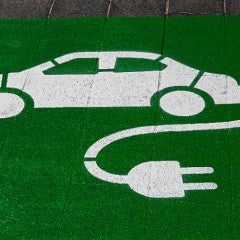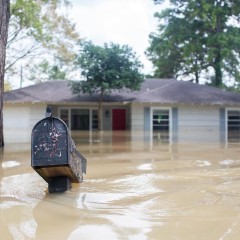The 2023 Menino Survey of Mayors, “Building for a Green Future: Cities and the IRA,” was released on March 7. The survey was open to mayors of any city with over 75,000 residents. Of those 507 cities, 118 mayors participated anonymously between June and September of last year.
The survey found that key challenges to implementing the IRA included a lack of knowledge from local officials and members of the public, inconvenient permitting processes and general opposition to building clean energy infrastructure, and that local governments of smaller cities “lack the capacity to apply for IRA grant funding, especially when confronted with a formidable federal bureaucracy.”
Federal investments from the IRA typically come in the form of tax credits and grants to state and local governments, nonprofit organizations and individual households. But 45% of mayors described the process as difficult, compared to 38% who said it was easy to participate.
Cleveland Mayor Justin Bibb, chair of the Climate Mayors organization, said his city has used IRA funding to create well-paying, green-economy jobs and improve education and training pipelines. However, a communication gap remains between public officials and their constituents.
“The opportunities funded through the Inflation Reduction Act move us closer to healthy, just and sustainable cities,” Bibb said in a statement. “But collectively, as mayors, we need to do a better job of translating how climate policy and justice directly impacts the daily lives of our residents. We also need to help better educate our communities on the incentives and technologies available to them through the IRA.”
E2, a national, nonpartisan group of business leaders, investors and professionals from every sector of the economy, released a report, “Clean Economy Works: IRA One-Year Review,” last August. It indicated that Texas was home to 13 clean energy or clean vehicle projects, totaling $5.2 billion in investments, which would create an estimated 4,193 jobs.
In Houston, the IRA could play a leading role in the energy transition. The Greater Houston Partnership established the Houston Energy Transition Initiative in 2019. It said then that it had seven projects in its pipeline; that number had increased to 68 by last August.
“While the full impact of the IRA has yet to be seen, the act is a fundamental piece to support funding the energy transition and catalyzing new technologies,” the Greater Houston Partnership said in a statement to the Urban Edge. “As experts continue to say, funding the energy transition is going to take multiple sources, including government funding/incentives, private investment and more to continue to augment these efforts.”
The Initiative on Cities survey concluded that local governments are essential to maximizing the IRA’s capabilities and bringing more climate infrastructure projects to reality, but they will require more clarity from the federal government.
“The Inflation Reduction Act represents a generational investment in addressing climate change,” the survey report said. “Its potential impact is enormous. Our conversations with mayors suggest that there remain many challenges to realizing the IRA’s potential.
“Successful implementation of this critical federal policy will require better communication of IRA provisions and opportunities to both local governments and individual households; support for local government capacity to apply to IRA grants, especially in smaller communities; reforms to regulatory processes that create opportunities for vocal opponents to stop or delay climate infrastructure projects; (and) standardization of local permitting processes, zoning and land use regulations, and building codes.”



